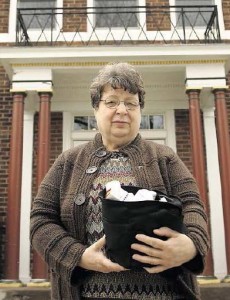Dan Driscoll used to be a smoker. During a regular doctor’s visit, his primary-care physician suggested that Driscoll be tested to see if he was at risk for an abdominal aortic aneurysm, a life-threatening condition that can be linked to  smoking. The doctor said Medicare would cover the procedure. So Driscoll, 68, who lives in Silver Spring, had the test done and was surprised when he got a bill from Medicare for $214.
smoking. The doctor said Medicare would cover the procedure. So Driscoll, 68, who lives in Silver Spring, had the test done and was surprised when he got a bill from Medicare for $214.
“I didn’t accept that,” he said, because based on everything he had read from Medicare, he was sure this was a covered service. So Driscoll did something that seniors rarely do: He filed an appeal. Of the 1.1 billion claims submitted to Medicare in 2010 for hospitalizations, nursing home care, doctor’s visits, tests and physical therapy, 117 million were denied. Of those, only 2 percent were appealed.
“People lose, and then they lose heart, or they are too sick, too tired or too old, and they give up,” said Margaret Murphy, associate director of the Center for Medicare Advocacy, which has offices in Washington and Connecticut. “Or their kids are handling the appeal and they are too overwhelmed caring for Mom or Dad.” [Continued at Kaiser Health News and The Washington Post.]
How To File A Medicare Appeal Here are some basic steps for challenging Medicare coverage denials…. [Continued at Kaiser Health News.]


 n., she could have bought a three-week supply. In South Florida, Pearl Beras, 85, of Boca Raton, Fla., said her hospital charged $71 for one blood pressure pill for which her neighborhood pharmacy charges 16 cents. Several other Medicare patients in Missouri were billed $18 for a single baby aspirin, said Ruth Dockins, a senior advocate at the Southeast Missouri Area Agency on Aging.
n., she could have bought a three-week supply. In South Florida, Pearl Beras, 85, of Boca Raton, Fla., said her hospital charged $71 for one blood pressure pill for which her neighborhood pharmacy charges 16 cents. Several other Medicare patients in Missouri were billed $18 for a single baby aspirin, said Ruth Dockins, a senior advocate at the Southeast Missouri Area Agency on Aging.